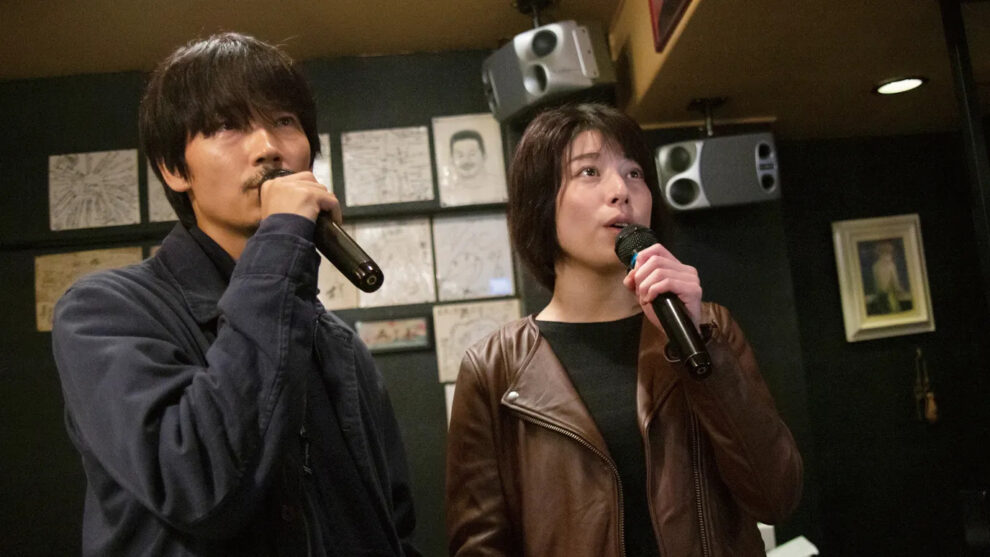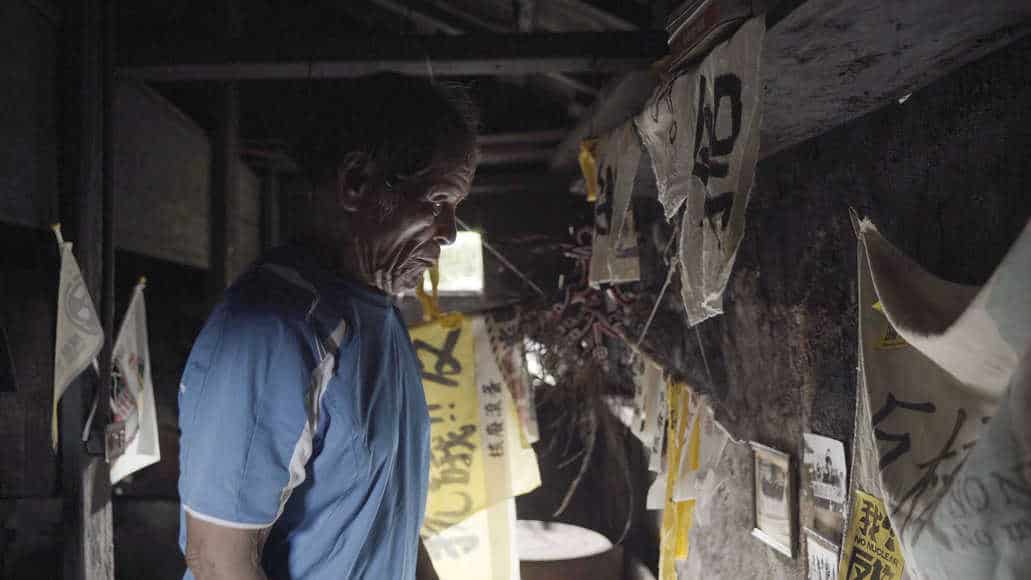It seems that the approach Nikkatsu has been implementing for the pinku film through her Roman Porno is creating ripples in the Japanese movie industry, with Toei also following suit, through the same, more sensitive to the times approach, that also focuses on women as much as on men. Haruhiko Arai has been another ‘champion' of the approach, as witnessed in his previous work, “It Feels So Good”. “A Spoiling Rain”, based on the Akutagawa Prize-winning 2000 novella “Hanakutasi” by Hisaki Matsuura, follows in the same footsteps, although the focus on the actual Japanese movie industry gives it a more personal sense, since Arai, as a scriptwriter, got his start as a screenwriter in Nikkatsu's Roman Porno.
A Spoiling Rain is screening at International Film Festival Rotterdam

Two bodies wash on a beach in the winter of 2012, in a lover's suicide involving actress Shoko Kirioka and director Kuwayama. It is left to Suichi Kutani, a failed pinku director, to inform the actress's parents, as the two were living together at the time of the suicide. After a meeting with other members of the pinku industry after the funeral, Kutani, in exchange for his overdue rent, is tasked by his landlord to evict another tenant, Iseki, who is also a failed member of the same industry, although in his case, as a scriptwriter. Expectedly, their acquaintance is not exactly ideal in the beginning, but the latter's insistence for drinks results in the two of them ending up drinking heavily in a bar, reminiscing intensely about their past and particularly their relationships with a woman that stigmatized them in different ways.
Haruhiko Arai directs a movie that unfolds in three time axes, one in the present, and two in the past, one for each of the protagonists. Interestingly, although not completely originally, the first one is presented in a sharp black-and-white and the other two in colors. The differences do not stop there, however, as the first one mostly revolves around the two men talking extensively, while the latter features more interactions, mostly through the two men and the aforementioned woman but also with some other members of the industry, including Kuwayama.
This approach, which also highlights the overall excellent job done by Chieko Suzaki in editing the timelines together, allows the story to unfold in a very intriguing fashion, retaining interest from beginning to end. The main trick here, which the audience will realize soon enough but the two protagonists seem to ignore, also works quite well, essentially highlighting how ignorant of the things happening around them both men are. This aspect is added to the thorough characterization here, as both men succumbed to grief and depression due to their declining careers, which eventually affected their relationships, even if in occasionally opposite ways. This element results in the woman, in both cases, being presented as a truly decent, kind and passionate person, whose biggest issue seems to be bad taste in men.
The dialogue-heavy approach of the main arc, as much as the intense drinking, will probably remind many of Hong Sang-soo's work, also for the focus on failed filmmakers and lousy men, but the past arcs move the narrative somewhat away from these aesthetics, as much as the erotic element, which eventually reaches this arc too, in probably the most pinku-like sequence of the movie. The two past arcs are more heavily erotic, with the sex scenes, though, being grounded in realism for the most part, and done in quite tasteful ways.
One of the main reasons for this quality is definitely the presence of Honami Sato (who has actually featured in a number of similar films apart from being one of the most famous drummers in Japan) whose beauty and acting during the particular scenes is among the best we have seen in pinku films. This prowess actually extends beyond the erotic, with the three main protagonists, including Go Ayano as Kutani and Tasuku Emoto as Iseki, all giving convincing performances throughout the movie, with their antithesis as characters working rather well here, especially in the dramatic element in the movie, which is actually the most prevalent.
Koichi Kawakami and Miho Shinyako's cinematography is another of the movie's traits, with the antithesis of the two axes (past and present) adding to the story, perhaps in a comment regarding the good times of the past and the bad of the present. The black-and-white in particular adds to the dramatic essence of the movie, cementing an overall nice job, even without particularly exaltations.
Some lagging, as usually, particularly close to the ending does exist here too, but in general, “A Spoiling Rain” is a very entertaining film that combines the erotic with the dramatic and a pessimistic sense of nostalgia in the best fashion, benefitting the most by both the direction and the charisma of all three protagonists.















